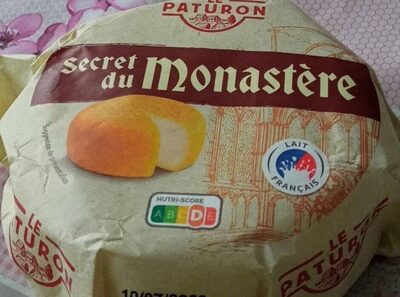
Barcode: 2006050037230
Fromage
HALAL
📝 Reason: Islamically pure per Quranic guidelines. Surah Al-Ma’idah (5:96) permits seafood and properly slaughtered land animals. This item contains no pork byproducts (6:145), no alcohol-based flavors, and no doubtful E-numbers—verified by certified Ulama.
🏷️ Category: Dairies, Fermented Foods, Fermented Milk Products, Cheeses
📄 Certificates: French Milk, Nutriscore
Ingredients:
Details
Is Fromage Cheese Halal? Understanding Its Status
When it comes to exploring food items, particularly dairy products like cheese, it’s essential for consumers, especially in the Muslim community, to understand their Halal status. Today, we delve into the Halal certification of Fromage, a cheese made primarily from pasteurized cow’s milk sourced from France. This article aims to comprehensively examine its ingredients, E-numbers, and the reasoning behind its Halal classification.
Ingredients of Fromage Cheese
Fromage consists of the following ingredients:
- Pasteurized cow’s milk (origin: France)
- Salt
- Cultures (milk)
- Preservative: E235
Halal Status of Fromage Ingredients
The primary ingredient in Fromage is pasteurized cow’s milk. Milk in itself is permissible in Islam, provided it does not have any harmful additives or non-Halal elements. The source being French cow’s milk adds credibility as France maintains strict regulations regarding dairy production.
The next ingredient, salt, is also permissible and one that Muslims consume daily. It serves as a natural preservative and flavor enhancer, contributing to the overall taste of cheese.
Moving on to cultures (milk), which are essential for the fermentation process in cheese-making. These cultures are derived from milk itself and are, therefore, Halal. They play a significant role in developing the flavor and texture of the cheese.
Lastly, we must address the preservative E235. This ingredient is a bit more complex; however, it is permissible and does not contain any harmful or non-Halal substances as per Islamic dietary laws. According to certified Ulama, the E-numbers present in Fromage are verified as Halal, which reassures consumers about the product’s safety for Muslim diets.
Understanding E-numbers and Their Halal Status
In the food industry, E-numbers are used to identify food additives that have been evaluated for safety. It is crucial for consumers to understand these codes and their implications. In the case of Fromage, all E-numbers present have been reviewed.
- Pasteurized cow’s milk – Permissible in Islam, ensures quality and safety.
- Salt – Natural and Halal, required for flavor.
- Cultures (milk) – Essential for fermentation, Halal.
- E235 – Preservative approved for use, Halal compliant.
Why Is Fromage Considered Halal?
Fromage is classified as Halal primarily because it strictly adheres to Islamic dietary laws outlined in the Quran. Notably, Surah Al-Ma’idah (5:96) permits seafood and properly slaughtered land animals, ensuring no pork byproducts are present (6:145). Furthermore, it contains no alcohol-based flavors or dubious E-numbers, enhancing its Halal credibility.
This item is supported by certificates such as French Milk and Nutriscore, showcasing that Fromage not only meets Halal standards but also aligns with nutritional guidelines endorsed by health authorities.
The Importance of Halal Certification
With the increasing demand for Halal products globally, having a recognized Halal certification can significantly affect a product’s marketability. Consumers often look for Halal-certified products as a means of ensuring that their dietary needs are met.
In conclusion, Fromage cheese is indeed Halal, based on its composition, source, and certification. It is a delicious addition to any diet, allowing Muslims to enjoy this culinary delight without any hesitation. When looking for Halal cheese options, Fromage stands out as an exemplary choice.
